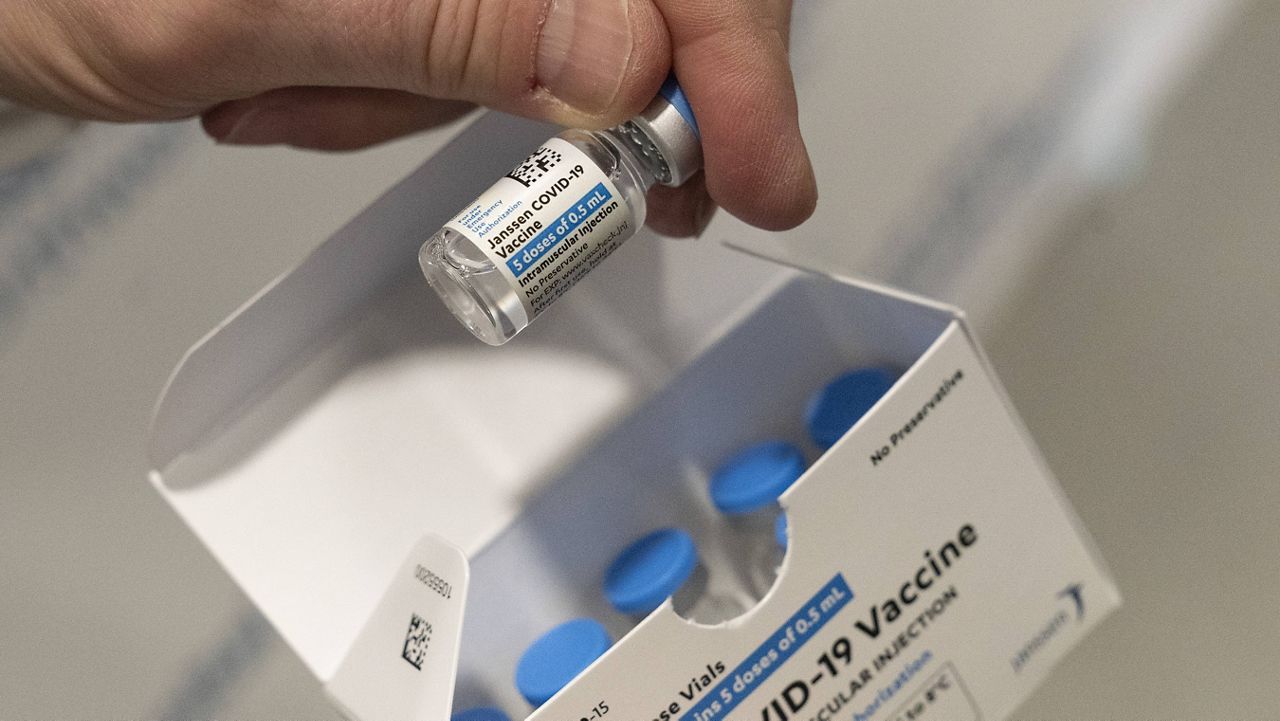The leaders of the U.S. Conference of Catholic Bishops (USCCB) are discouraging Catholics from receiving Johnson & Johnson’s COVID-19 vaccine because it was made using abortion-derived cells.
What You Need To Know
- The leaders of the U.S. Conference of Catholic Bishops released a statement advising Catholics to choose the Pfizer or Moderna COVID-19 vaccines over the Johnson & Johnson vaccine if given a choice
- The bishops argued that the Johnson & Johnson vaccine raises "additional moral concerns" because it used abortion-derived cell lines in its development, testing and production
- The bishops stopped short of forbidding Catholics from taking the J&J vaccine because "being vaccinated can be an act of charity that serves the common good"
- Johnson & Johnson released a statement noting that there is no fetal tissue in its vaccine and that the cell line enables the rapid production of new viral vaccines
The organization, however, stopped short in its statement Tuesday of forbidding Catholics from taking the vaccine, instead saying that if they have the choice, they should opt for the Pfizer or Moderna vaccine instead.
The USCCB noted that the Pfizer and Moderna vaccines were tested using abortion-derived cell lines but deemed those more acceptable than Johnson & Johnson’s, which it said was developed, tested and produced using such cells, “raising additional moral concerns.”
The statement was written by Bishop Kevin Rhoades of Fort Wayne-South Bend, Indiana — who is the chairman of USCCB’s Committee on Doctrine — and Archbishop Joseph Naumann of Kansas City, Kansas — chairman of the group’s Committee on Pro-Life Activities.
The bishops cited guidance from the Congregation for the Doctrine of the Faith, which said “when ethically irreproachable Covid-19 vaccines are not available … it is morally acceptable to receive Covid-19 vaccines that have used cell lines from aborted fetuses in their research and production process.”
“If one can choose among equally safe and effective COVID-19 vaccines, the vaccine with the least connection to abortion-derived cell lines should be chosen,” the bishops said. “Therefore, if one has the ability to choose a vaccine, Pfizer or Moderna’s vaccines should be chosen over Johnson & Johnson’s.”
Due to limited availability, however, people generally are not given a choice of which vaccine they will be administered. So while the bishops made their preference clear in their statement, they also sought not to leave Catholics choosing between the Johnson & Johnson vaccine or no vaccine at all.
“While we should continue to insist that pharmaceutical companies stop using abortion-derived cell lines, given the world-wide suffering that this pandemic is causing, we affirm again that being vaccinated can be an act of charity that serves the common good,” their statement said.
The New Orleans Archdiocese released a statement last week expressing similar concerns.
"[T]he archdiocese must instruct Catholics that the latest vaccine from Janssen/Johnson & Johnson is morally compromised as it uses the abortion-derived cell line in development and production of the vaccine as well as the testing," the New Orleans Archdiocese said.
"We maintain that the decision to receive the COVID-19 vaccine remains one of individual conscience in consultation with one’s healthcare provider," it added. "We also maintain that in no way does the Church’s position diminish the wrongdoing of those who decided to use cell lines from abortions to make vaccines. In doing so, we advise that if the Moderna or Pfizer vaccine is available, Catholics should choose to receive either of those vaccines rather than to receive the new Johnson & Johnson vaccine because of its extensive use of abortion-derived cell lines."
The Johnson & Johnson vaccine utilizes the PER.C6 cell line, which uses clones that can be traced back to an 18-week-old fetus aborted in 1985.
In a statement, Johnson & Johnson said: “There is no fetal tissue in our Janssen COVID-19 vaccine. Our COVID-19 vaccine is an inactivated/non-infective adenovirus vector (similar to a cold virus), which codes for the coronavirus ‘spike’ (S) protein. We are able to manufacture hundreds of millions of doses using our engineered cell-line system that enables the rapid production of new viral vaccines to combat many of the most dangerous infectious diseases.”
The Food and Drug Administration on Saturday authorized the Johnson & Johnson vaccine for emergency use, making it the third approved vaccine in the United States. Johnson & Johnson’s vaccine requires one shot, while those developed by Pfizer and Moderna require two doses.
Ryan Chatelain - Digital Media Producer
Ryan Chatelain is a national news digital content producer for Spectrum News and is based in New York City. He has previously covered both news and sports for WFAN Sports Radio, CBS New York, Newsday, amNewYork and The Courier in his home state of Louisiana.




